1. 1. Information Need
1.1. 1.1.A Confers with Instructors and participates in class discussions, peer work groups, and electronic discussions to identify a research topic, or other information need
1.1.1. In Class Discussion
1.1.2. Social Media Activity
1.1.3. Research Project
1.1.3.1. Research Proposal
1.2. 1.1.B Develops a thesis statement and formulates questions based on the information need
1.2.1. Research Project
1.2.1.1. Research Proposal
1.2.1.2. Wikipedia Research Proposal
1.3. 1.1.C Explores general inforamtion sources to increase familiarity with the topic
1.3.1. Schedule Library Session on Reference and the Internet
1.3.2. Wikipedia
1.3.2.1. Wikipedia Article
1.3.2.2. Evaluate Wikipedia Activity
1.3.3. Reference
1.3.3.1. Reference Cheat Sheet
1.3.3.2. Any Old Bag
1.3.3.3. Research Proposal
1.3.4. Research Project
1.4. 1.1.E Identifies key concepts and terms that describe the information need
1.4.1. Creating Effective Search Strategies Handout
1.4.2. Search Strategies Handout
1.5. 1.3.C Defines a realistic overall plan and timeline to acquire the needed information
1.5.1. The Research Process
1.5.1.1. The Research Process Handout
1.5.1.2. Library Session: Creating a Research Plan
1.5.1.3. Online Tutorial: The Research Process
2. 3. Evaluate Information
2.1. 3.2.C Recognizes prejudice, deception, or manipulation
2.1.1. in class discussion
2.1.2. Response paper
2.1.3. Research Paper
2.1.3.1. annotated bibliography
2.1.3.2. research journal
2.2. 3.2.D Recognizes the cultural, physical, or other context within which the information was created and understands the impact of context on interpreting the information
2.2.1. Research Book Reviews
2.2.2. in class discussion
2.2.3. Research Project
2.3. 3.5.A Investigates differing viewpoints encountered in the literature
2.3.1. Research Notes
2.4. 3.5.B Determines whether to incorporate or reject viewpoints encountered
2.4.1. Reaction Paper
2.4.2. in class discussion
2.4.3. Response paper
2.5. bibliobouts
2.6. Book Evaluations
2.7. In Class Discussion
3. 2. Select and Retrieve Information
3.1. 2.2.A Develops a research plan appropriate to the investigative method
3.1.1. Research Project Source Requirement
3.1.1.1. Class Discussion
3.2. 2.2.C Selects controlled vocabulary specific to the discipline or information retrieval source.
3.2.1. Tagging Activity
3.3. 2.4.A Assesses the quantity, quality, and relevance of the search results to determine whether alternative information retrieval systems or investigative methods should be utilized
3.4. 2.5.A Selects among various technologies the most appropriate one for the task of extracting the needed information (e.g., copy/paste software functions, photocopier, scanner, audio/ visual equipment, or exploratory instruments)
3.4.1. Taking Notes Handout
3.5. 2.5.B Creates a system for organizing the information
3.5.1. Social Bookmarking Activity
3.5.2. Google Reader Project
3.5.3. Taking Notes Handout
3.6. 3.1.A Reads the text and selects the main ideas
3.6.1. In Class Discussion
3.6.2. In Class Writing Exercise
3.6.3. Research Project
3.6.3.1. annotated bibliography
3.6.3.2. Research Notes
3.7. Database Discovery Project
3.7.1. Advanced Database Discovery Project
4. 7. Participate in Information Discourse
4.1. 1.2.B Recognizes that knowledge can be organized into disciplines that influence the way information is accessed
4.1.1. In Class Discussion
4.1.2. Career Research Paper
4.2. 1.1.F Recognizes that existing information can be combined with original thought, experimentation, and/or analysis to produce new information
4.2.1. In Class Discussion
4.3. 3.4.C Draws conclusions based upon information gathered
4.3.1. Research Project
4.3.2. In Class Discussion
4.3.3. Response Paper
4.4. 3.6.A Participates in classroom and other discussions
4.4.1. 1.2.A Knows how information is formally and informally produced, organized, and disseminated
4.4.1.1. In Class Discussion: Media Creation
4.4.1.2. In Class Discussion: What is Information?
4.4.1.3. Library Scavenger Hunt
4.4.1.4. Library Bingo
4.4.2. 3.6 B Participates in class-sponsored electronic communication forums designed to encourage discourse on the topic (e.g., email, bulletin boards, chat rooms)
4.4.2.1. Twittical Thinking
4.4.2.2. Information Scrapbook
4.4.3. Discussion Topics
4.4.3.1. Web 2.0
4.4.4. In-Class Feedback
4.4.5. Research Project
5. 6. Understand and Discuss Information Issues
5.1. 5.1.D Demonstrates an understanding of intellectual property, copyright, and fair use of copyrighted material
5.1.1. Syllabus
5.1.2. In Class Discussion
5.1.3. Library Session: Copyright and Fair Use
5.1.4. Plagiarism Activity
5.1.5. YouTube Plagiarism Activity
5.1.6. Copyright Living Likerts
5.1.7. Reading: A General Guide to Creating Open Content
5.1.8. Research Project
5.2. 5.1.C Identifies and discusses issues related to censorship and freedom of speech
5.2.1. in class discussions
5.3. 5.2.D Preserves the integrity of information resources, equipment, systems, and facilities
5.3.1. Syllabus
5.4. 5.2.F Demonstrates an understanding of what constitutes plagiarism and does not represent work attributable to others as his/her own
5.4.1. Research Project
5.4.1.1. Bibliography
5.4.1.2. Research Paper In Text Citations
6. 5. Communicate the Product
6.1. 4.3.D Communicates clearly and with a style that supports the purposes of the intended audience
6.1.1. Research Project
6.1.1.1. Class Presentation
6.1.1.2. Poster Presentation
6.1.1.3. Senior Portfolio
6.1.2. in class discussion
6.2. Student Group Presentations
6.3. Blog Project
7. 4. Create a Product
7.1. 4.1.A Organizes the content in a manner that supports the purposes and format of the product or performance (e.g., outline, drafts, storyboards)
7.1.1. Research Project
7.1.1.1. Research Paper Outline
7.1.1.2. Research Paper Rough Drafts
7.2. 4.1.B Articulates knowledge and skills transferred from prior experiences to planning and creating the product or performance
7.2.1. assignment
7.3. 3.3.C Draws conclusions based upon information gathered
7.3.1. Final Research Project
7.3.2. Poster Presentation
7.4. 3.4.F Integrates new information with previous information or knowledge
7.4.1. Final Research Project
7.4.2. Poster Presentation
7.4.3. In Class Discussion
